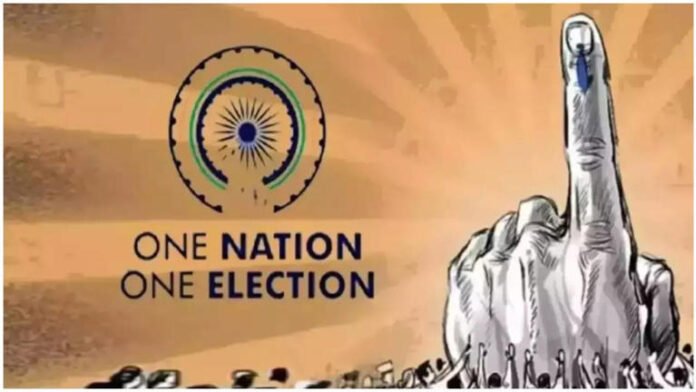The “One Nation, One Election” proposal has sparked a nationwide debate, raising questions about its impact on governance, democracy, and India’s federal structure. As discussions intensify, the Election Commission (EC) of India continues to emphasize the importance of the Model Code of Conduct (MCC) in ensuring fair elections. This article delves into the nuances of the debate and explores related topics shaping the discourse.
1. Understanding the Model Code of Conduct (MCC): Key Provisions and Purpose
The MCC is a set of guidelines issued by the EC to ensure a level playing field for all political parties during elections. It restricts ruling governments from announcing new projects or policies that could influence voters and establishes ethical standards for campaign conduct. Developed in consultation with political parties, the MCC has become a cornerstone of India’s electoral democracy.
2. The Debate Over ‘One Nation, One Election’: Pros and Cons
The proposal to synchronize elections for the Lok Sabha and state assemblies aims to reduce the financial and administrative burdens of frequent polls. Proponents argue it could streamline governance and increase voter participation. However, critics warn of risks to federalism, as simultaneous polls may centralize power and reduce the flexibility of state governments to dissolve assemblies or hold mid-term elections.
3. Impact of MCC on Development and Governance
One of the key criticisms of the MCC is its impact on development projects. During elections, governments are restricted from launching new schemes or implementing major initiatives, which some argue delays progress. The EC, however, contends that the MCC is essential for fair elections and that its duration can be minimized by rationalizing election cycles.
4. Financial and Administrative Challenges of Frequent Elections
India’s staggered election schedule incurs significant costs and requires extensive deployment of resources, including security forces and administrative staff. Simultaneous elections could potentially reduce these expenditures, allowing funds to be redirected toward development initiatives.
5. Federalism vs. Uniformity: Implications of Simultaneous Elections
India’s federal structure allows states to function independently of the central government. Critics of “One Nation, One Election” argue that synchronized polls could undermine this autonomy, forcing states to align their electoral timelines with national priorities. This raises concerns about the balance of power between the center and states.
6. Streamlining the Model Code of Conduct: EC’s Proposals and Challenges
The EC has proposed rationalizing the MCC’s application to reduce disruptions while maintaining electoral fairness. Suggestions include limiting the code’s duration and scope during simultaneous elections. However, implementing such changes would require broad political consensus and legislative amendments.
7. The Role of the Election Commission in India’s Democracy
The EC plays a critical role in maintaining electoral integrity. Its efforts to ensure transparent and fair elections have earned it credibility worldwide. The MCC is a vital tool in this mission, reinforcing public trust in the democratic process.
8. International Perspectives on Simultaneous Elections
Several countries, including Indonesia and South Africa, conduct simultaneous elections. While these models offer insights, India’s unique diversity and federal structure pose distinct challenges, requiring tailored solutions rather than direct replication.
9. Technological Solutions to Election Management in India
Adopting advanced technology could address some logistical challenges of frequent elections. Innovations such as blockchain voting, electronic voter rolls, and real-time monitoring systems could enhance efficiency and reduce costs.
10. Public Opinion on ‘One Nation, One Election’: Voices from Across India
Public sentiment on synchronized polls is mixed. While many support the idea of reducing election-related disruptions, others fear it could dilute regional representation and marginalize state-specific issues.
The “One Nation, One Election” proposal raises significant questions about the future of India’s democracy. While it offers potential solutions to some challenges, it also poses risks that require careful consideration. As the EC continues its consultations with stakeholders, the focus must remain on upholding the principles of fairness, federalism, and inclusivity that define India’s democratic ethos.



